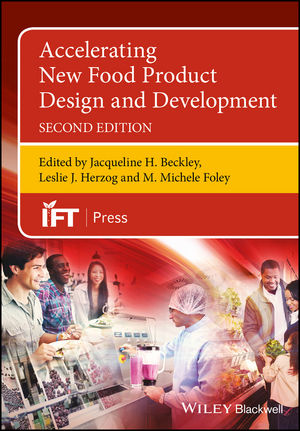![]()
IBC Files for Chapter 11
In the largest bankruptcy filing by a baking industry company in recent memory, Interstate Bakeries Corp. entered Chapter 11 reorganization on Sept 22. IBC, the nation’s largest producer of packaged bread and baked sweet goods, has about $3.5 million in annual sales.
In addition, the Kansas City, Mo.-based company announced that James Elsesser, its chairman and CEO, has resigned. Interstate’s board named Tony Alvarez its CEO and John Suckow as chief restructuring officer. Alvarez is the co-chief executive and Suckow is managing director of Alvarez and Marsal, a firm that has extensive experience in restructuring companies with financial troubles. Leo Benatar, an IBC director, becomes nonexecutive chairman.
Moreover, subject to bankruptcy court approval, the company has received a commitment for $200 million for debtor-in-possession financing from JPMorgan Chase Bank to fund ongoing expenses as it restructures.
IBC has cited rising soft sales, skyrocketing health benefit costs, higher commodity prices, increasing energy costs and other reasons for its ongoing difficulties.
By filing for Chapter 11 and securing new financing, Alvarez said in a statement, “the company should have the liquidity, time and resources necessary to thoroughly identify, assess and address the issues that will enable this company to be successful in the future.”
Alvarez also noted that the company’s Wonder, Hostess and other brands “are some of the most recognizable and popular … in the nation.”
Here’s some of what led up to the reorganization filing. IBC had faced a Sept. 26 deadline to file its fiscal 2004 Form 10-K, also known as its audited financial statements for the previous fiscal year. If it didn’t meet the deadline, it would have been in default of its loan covenants, which could have started a chain of events, including seeking alternative financing and restructuring.
IBC had been unable to file its 10-K form since it was due June 30 because of a number of “interrelated circumstances,” including issues with the funding of its workers’ compensation plan and initial data entry and training deficiencies with its newly implemented financial reporting systems, installed on June 1.
Interstate received an extension to file the form until Aug. 27. However, it was unable to do so by that date. The company also blamed the delay on resulting uncertainty as to whether it’s in compliance with its bank loan and the inability of independent auditors to sign off on the 10-K form because of troubles with its financial reporting systems.
Moreover, problems with those systems delayed information and made it difficult to analyze the impact of negative sales trends during its first quarter of fiscal 2005. As a result of these issues, IBC said in August that its fiscal 2004 statements may contain “a paragraph to the effect that there may be substantial doubt about the company to continue as a going concern.”
The statement, however, lit a fire of speculation among Wall Street analysts and investors that IBC could be facing Chapter 11 bankruptcy reorganization if it was unable to meet its Sept. 26 deadline.
Fueling that speculation had been the company’s recent hirings of Alvarez & Marsal and chief financial officer Richard Hutchison, who has experience working with troubled businesses, such as Aurora Foods and K-Mart, during Chapter 11 reorganizations.
Interstate also hired Miller, Buckfire, Lewis, Ying & Co., LLC. That investment-banking firm specializes in advising debt-laden companies with large-scale corporate restructurings, mergers and acquisitions and privately placed financial transactions.
Krispy Kreme Kremed
By Wall Street Investors
Wall Street investors apparently lost their appetite for Krispy Kreme Doughnuts’ stock after the chain missed analysts’ projections, reported a 55% decline in second-quarter earnings and refused to provide earning guidance for its third quarter.
Moreover, the company’s independent auditor reportedly declined to sign off on KKD’s financial statement for the second quarter.
In a Sept. 10 filing with the SEC, Krispy Kreme noted that the auditors would not complete its review of financial statements until an independent law firm hired by Krispy Kreme’s board provided additional information concerning an unspecified acquisition in fiscal 2004.
Krispy Kreme’s stock, which has traded upward of $44 dollars during the previous 52 weeks, stood at below the $12 mark in mid-September. For the second quarter ending Aug. 1, the Winston-Salem, N.C.-based company earned $5.7 million compared with $13 million for the same period year ago. Additionally, Krispy Kreme lowered system sales guidance for fiscal 2005 by 15% and announced that it will open 75 stores next year — about 25 fewer than anticipated.
Scott Livengood, chairman, president and CEO, stressed that the company was going to focus less on growth and more on building the profitability of existing stores, which experience huge sales when they first open only to see sales moderate as time goes on. As a result, the mini-factories eventually can find themselves overstaffed for their revenue levels.
In some areas where it’s not profitable, Krispy Kreme may de-emphasize its once-explosive off-premise sales and focus more on on-site sales where consumers can enjoy hot, glazed donuts fresh from the fryer. Additionally, the company plans to open stores smaller (about 2,000 sq. ft.) than its traditional stores, which some analysts say are big for small- and mid-sized markets.
Butter Krust Baking
Wins Long Co. Awards
Who bakes the best bread and has the best buns in The Long Co.? Butter Krust Baking Co. of Sunbury, Pa., beat out more than two dozen wholesale bakeries that send premium bread samples to the Chicago-based cooperative each month.
The Long Co.’s technical-service staff scores samples for such qualitative variables as flavor, aroma, crust thickness, crust color, interior grain, uniformity of cell structure and general eating qualities.
B&CMA to Teach
Success Amidst Change
“Succeeded in a Changing Landscape” will be the central theme of the Biscuit & Cracker Manufacturers’ Association Technical Conference, to be held Oct. 17-20 in Raleigh, N.C.
Daryl Brewster, group vice president and president, U.S. Snacks Sector for Kraft Foods Inc., will highlight the conference with the state-of-the-industry report on the cookie and cracker categories.
Sue Borra, executive vice president of the International Food Information Council, will give the second keynote on consumer trends and perceptions impacting the industry.
Yes, there are many technical seminars, ranging from expert panels on formulating low-carb products to overcoming the challenges in removing trans fat from products.
For more information, call 301-608-1552 or visit www.thebcma.org.
For more information, call 301-608-1552 or visit www.thebcma.org.
Studies: Wheat Bran
May Prevent Cancer
Antioxidants found in wheat bran may help prevent colorectal cancer tumors, according to separately conducted studies by Kansas State University and Wichita State University.
An antioxidant class of orthophenolics, a chemical component in whole wheat, appears to block the formation of mutagenic compounds. Researchers found that diets including the same level of wheat bran but with varied levels of antioxidants exhibited dramatically different capacity to suppress tumor growth.
“This work shows the importance of maintaining a balanced diet, including foods from wheat and other cereals that impact the digestive system and protect it against cancer. Current restrictive diets may prevent consumers from realizing these health benefits,” notes Virgil Smail, head of KSU’s Grain Science and Industry Department.
AIB Enriches IBIE
Experience in Vegas
Nearly 350 people attended a series of seminars presented by the American Institute of Baking during the International Baking Industry Exposition held in Las Vegas in August.
“It’s just a great way to explain the latest techniques and technologies,” says Jeff Rootring who heads AIB’s Bakery Training Services and presented research on the latest developments concerning extended shelf life.
Robert Kirkpatrick, vice chairman if the IBIE Committee and president of Rondo Inc., added that “the seminars broadened the value by providing information about things that are of interest to the people” who attended the show.
Poore Brothers Teams
Up with Cinnabon
Following up on its successful agreement to produce T.G.I.Friday’s branded salted snacks, Goodyear, Ariz.-based Poore Brothers signed an agreement to produce and sell Cinnabon branded snacks. The multi-year agreement grants exclusive brand licensing rights for certain snack categories. Terms of the agreement were not disclosed.
Currently, Poore Brothers is in the research and development stages. The snack producer plans to begin test marketing of Cinnabon snacks during the next six months, says Thomas Freeze, Poore Brothers president and CEO.
BEMA Supports New Grain Foundation
Join ASB, Support The Grains Foundation
To support the new Foundation for the Advancement of Grain-Based Foods, the American Society of Baking set up a challenge grant where it will contribute $100 to the foundation for every new baking professional that joins the society during the current fiscal year.
If, for example, 200 new members join the society, the ASB will make a $20,000 contribution, notes Thomas Kuk, ASB president.
If 50% of the commercial baking plants in the nation add one new member, the society would contribute 50,000, he adds
If, for example, 200 new members join the society, the ASB will make a $20,000 contribution, notes Thomas Kuk, ASB president.
If 50% of the commercial baking plants in the nation add one new member, the society would contribute 50,000, he adds
“The Grains Foundation is an example of everyone coming together to promote the common good for all,” Kuk says. “Our effort is to demonstrate that same spirit can be shared across all areas of the industry benefiting all who wish to participate.”
For more information, call 866-920-9885 or visit www.asbe.org.





